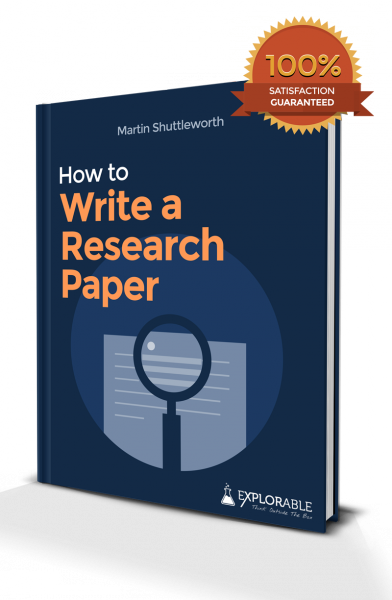
- Home >
- Article Writing Help
Article Writing Help
Five Pitfalls
Five Pitfalls
Need article writing help? Here are the five most common pitfalls when writing an academic paper.
This article is a part of the guide:
Browse Full Outline
With any piece of writing, whether it is an essay or a research paper, the whole process of sitting down and writing the paper can be overwhelming. Even though you have read our guide on tips for writing an article, something does not seem quite right with your paper.
Usually, this is because your use of English could be a little better, or the paper is not structured properly. Sometimes it is because you have no ‘flow’ to the writing, and it appears very disjointed. Here are a few article writing help tips:

1. Grammar and Punctuation
If you are a scientist or historian, nobody expects you to have the command and range of language that a language student will, or possess perfect grammar and punctuation.
In fact, this is no problem, because you must strive for maximum clarity and readability rather than win a Pulitzer Prize.
- Use the correct sentence length. Too long, and people will think that your paper is tortuous and message will be lost. Too short, and it looks unprofessional.
- When you do the spell check at the end of the paper, it brings up a box telling you the average sentence length.
- Whilst you should be wary of slavishly adhering to numbers, 15 – 20 words per sentence is about right. If you find that you are writing 40 – 50 word ‘run on’ sentences, look for somewhere to break it into two or three shorter sentences. You may be able to cut out a few unnecessary words, too.
- You need to be able to use commas, full stops and capitalization correctly.
2. Person and Tense
The person used in a paper is a subject of debate, at the moment, and even the MLA and APA style guides are not 100% sure. Some people stick to the traditional impersonal tense:
…’it was found that.’
Others use personal pronouns, avoiding passive sentences:
...’we found that.’
This is something that you should check with your supervisor and stick to it throughout the entire paper. Tense should not vary in the same paragraph – if you start a paragraph in the past tense, it should remain in the past tense, wherever possible.
3. Waffling
This is the most common fault with any research paper – if you have a word limit, and you are somewhat short of that, it is tempting to add irrelevance, by adding unrelated information or saying the same thing more than once, in a slightly different way.
Usually, it is better to have a slightly shorter paper that is focused, rather than a longer paper that crawls over the word limit.
4. One Sided
If you are writing a paper, with a specific thesis, it is too easy to fall into the trap of using only the evidence that suits your argument. This is exceptionally weak, and any reader will see through it.
If you find a source that is contradictory to yours, you should embrace it, because it really gives you a chance to show what you can do. This gives you the opportunity to make your argument stronger by giving counter points to the source.
Academic work is never black and white, so do not be afraid to concede that another viewpoint is correct.
In fact, you may uncover some sources that are so compelling that they make you rewrite you thesis statement. This really is not a problem.
5. Readability and Flow
This is one of the factors that can make a paper sublime, but is one of the hardest parts to accomplish.
The ideal paper should flow effortlessly from one sentence to the next, making it a pleasure to read rather than a chore. Much of this comes with practice, and some will never be masters, but one little to tip is that you should read the paper out loud to yourself.
If you find yourself tripping over sections, it is likely that they are clumsy as the written word, too, so try tweaking the language a little.
Final Thoughts
Hopefully, these tips will help you to tweak and refine your paper, making sure that all of your hard work researching, planning and designing your project does not go to waste.
You can have the best project in the world but, if it is not written properly, the reader will look elsewhere long before the end.
Martyn Shuttleworth (Mar 16, 2009). Article Writing Help. Retrieved Feb 20, 2026 from Explorable.com: https://explorable.com/article-writing-help
You Are Allowed To Copy The Text
The text in this article is licensed under the Creative Commons-License Attribution 4.0 International (CC BY 4.0).
This means you're free to copy, share and adapt any parts (or all) of the text in the article, as long as you give appropriate credit and provide a link/reference to this page.
That is it. You don't need our permission to copy the article; just include a link/reference back to this page. You can use it freely (with some kind of link), and we're also okay with people reprinting in publications like books, blogs, newsletters, course-material, papers, wikipedia and presentations (with clear attribution).
This article is a part of the guide:
Browse Full Outline
Footer bottom



